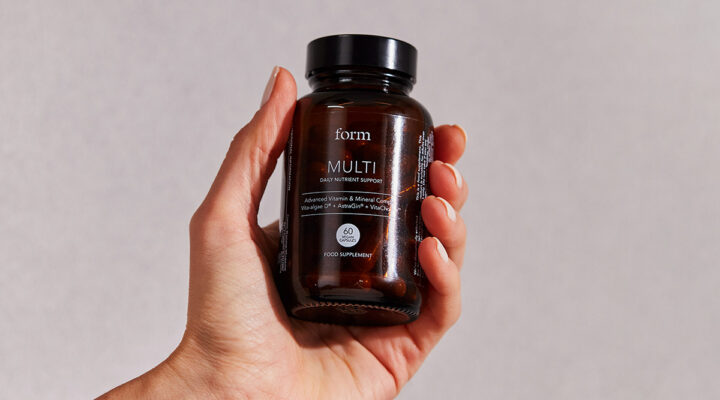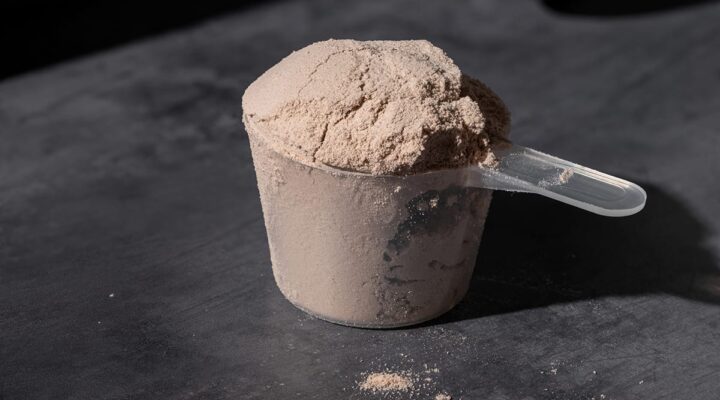Why Are Vitamins Essential for My Physical and Mental Health?

Vitamins and minerals are an essential part of keeping you at your best. From shooting nerve signals around the body to making sure your immune system is working correctly, they help to perform hundreds of roles in the body that keep us running at peak performance.
Ideally, a nutrient-packed diet would provide all the essential vitamins to support your health, but this doesn’t always transpire in reality. In fact, an estimated two billion people – 30% of the global population – lack one or more crucial micronutrients.
Here, we help to unpack what vitamins and minerals actually do and why you want to make sure you’re getting enough of them on a daily basis.

What vitamins are people commonly deficient in?
Because of reduced levels of sunshine, everyone in the UK is at a higher risk of vitamin D deficiency. Around 1 in 6 adults in the UK are thought to have low levels of vitamin D in their blood. This essential vitamin is crucial for healthy muscles, teeth and bones, and it also plays a role in regulating mood too.
“We get vitamin D via summer sunlight on our skin, but in the UK, during the autumn and winter months, it’s much harder to get enough UVB to meet our vitamin D needs, because we tend to cover more of our skin with clothes and the sun stays lower in the sky. Therefore, we need to rely on foods and supplements,” says GP Dr Nisa Aslam, author of HSIS’ ‘Back to basics: the nutrients you need, served on a plate’ report.

The report found that, as well as vitamin D, many people in the UK are deficient in folate, calcium, magnesium, selenium, iron, iodine and omega-3. Women are particularly at risk, with nine out of 10 women of child-bearing age recording low folate levels.
Aslam notes: “Iron is also lacking in over half of girls aged 11-18 years and more than one-quarter of women aged 19-64, which in time could lead to iron deficiency anaemia – a condition that causes tiredness and affects immune function.”
But why these people in particular? The report cites a number of key reasons for falling nutritional intakes in these groups, including a rise in fad diets where whole food groups are avoided, a lack of cooking from scratch, low vegetable and wholegrain intakes, and the rise in processed foods.
“Red meat is a source of several highly bioavailable, key micronutrients including zinc, iron, iodine, vitamin B12 and vitamin D so, if you plan to cut it out of your diet, you need to plan for suitable nutrient-rich alternatives or top up with a multivitamin and multimineral supplement,” says Aslam.
Despite this rise in the number of people following plant-based diets, the report found that fewer than a third of adults aged 19-34 manage to hit their recommended number of five 80g portions of fruits and vegetables a day, making it more likely that they miss out on the essential vitamins and minerals provided by these foods.
While it’s always better to get the nutrients we need from food, it’s advisable to take a multivitamin daily, as it can act as an insurance policy against vitamin deficiencies. You should see a GP if you’re experiencing symptoms of a vitamin deficiency, as these conditions can often be diagnosed based on your symptoms and the results of a routine blood test.
How do vitamins support my wellbeing?
1. They can bolster your immune system
Your immune system is a complex network of cells, proteins and chemicals that protect you against oncoming viruses and germs.
As well as helping to promote strong bones and healthy blood cells, vitamin D is vital for keeping your immune system in good nick. We can only make vitamin D in our skin on exposure to sunlight, so it’s advisable to take a multivitamin year-round, but especially in the darker months.
Studies have also found that vitamin C can have an effect on immunity, as it is linked to the production of white blood cells, which help protect the body against infection. Along with the likes of Siberian Ginseng, it’s also a powerful antioxidant, which may help to reduce inflammation in the body.

2. They can help you to feel energised
Diet can play a key role in maintaining your energy levels throughout the day, and if you’re struggling to stay awake at 3pm, it might be time to check your vitamin levels. B vitamins, like vitamin B12, are one of the most common deficiencies: they work to convert the food you eat into glucose that your cells can use for energy, helping you to feel fired up for a day of juggling work calls with life admin. It’s also instrumental in the development of brain and nerve cells, and the production of red blood cells too.
Vitamin B12 is naturally found in animal foods, so if you’re trying to cut down on your meat consumption this year, whether for environmental, animal rights or health reasons, you should consider taking a supplement and looking for foods that are fortified with the vitamin.
Alongside B12, studies have also found that having enough iron in your body can help to reduce tiredness and fatigue.
3. They may affect your mood
Speaking of the B vitamins, this family plays a key role in producing brain chemicals that can have an important effect on your mood. Nobody likes to wake up on the wrong side of the pillow, but it can become a real challenge if you’re struggling to feel motivated day in, and day-out.
Studies have linked a deficiency in B vitamins with depression, noting that B12 can influence the levels of serotonin in your brain – the neurotransmitter that promotes feelings of wellbeing and happiness.
Deficiencies in some minerals have also been associated with depressive symptoms too, such as magnesium and zinc.
4. They’ll support you in ageing well
At any age, you need to make sure you’re getting the right nutrients. But as you get older, your nutritional needs tend to grow while your body’s ability to absorb vitamins decreases.
Calcium helps your muscles, nerves, cells and blood vessels to function correctly, as well as keeping your bones healthy later in life. When taken together, vitamin K, vitamin D and calcium can work synergistically to improve both bone and muscle loss – one of the more powerful effects of ageing that many of us neglect to consider.
If you’re concerned about skin ageing too, some studies have found that vitamin C may be essential for collagen production and may have protective effects against UV sun damage too (although we’d always recommend wearing a suitable SPF in sunny weather).
Finally, vitamin E is a potent antioxidant that can help to fight oxidative stress and free radicals in the body, protecting you from both the signs of ageing and degenerative diseases too.
Finally, getting the right vitamins and minerals your body needs to function at its best isn’t always easy. One of the simplest fixes is taking a daily multivitamin (Try Form’s Multi, £34 for 120 capsules). A decent multivitamin will fill any nutritional gaps while supporting your overall well-being, helping you to stay happy, healthy and energised.



















